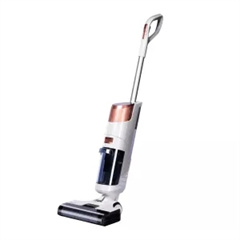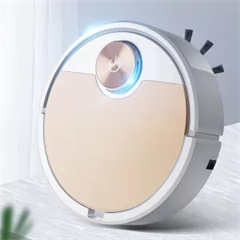1. Filtration Efficiency: HEPA filters are known for their high filtration efficiency. To qualify as a HEPA filter, it must remove at least 99.97% of particles as small as 0.3 microns in size from the air that passes through it. This includes common allergens like dust mites, pollen, pet dander, and even some bacteria and viruses.
2. Allergen Removal: HEPA filters are highly effective at trapping and containing microscopic allergens, making them an essential component in vacuum cleaners for people with allergies or asthma. When used in a vacuum cleaner, they help capture allergens from carpets, rugs, upholstery, and floors, preventing them from being released back into the air.
3. Improved Air Quality: By trapping and retaining fine particles, HEPA filters contribute to improved indoor air quality. This is especially important for individuals who suffer from allergies, asthma, or other respiratory conditions, as cleaner air can reduce symptoms and provide relief.
4. Dust and Pollutant Removal: HEPA filters can also capture larger particles like dust, dirt, and pet hair. This is beneficial for general cleaning and helps keep your home cleaner and healthier.
5. Reducing Asthma and Allergy Triggers: HEPA filters can significantly reduce common asthma and allergy triggers in your home, creating a more comfortable living environment.
6. Complementary to Other Filters: Many vacuum cleaners with HEPA filters also have additional filtration stages, such as pre-motor and post-motor filters, to further improve air quality and the overall performance of the vacuum.
7. Regulatory Standards: HEPA filters are subject to strict standards and testing to ensure their filtration efficiency. These standards are set by organizations like the U.S. Department of Energy (DOE) and the European Union (EU).
8. Regular Maintenance: To maintain the effectiveness of a HEPA filter in a vacuum cleaner, it’s essential to follow the manufacturer’s maintenance recommendations. This may include cleaning or replacing the filter at specified intervals, typically every six months to two years, depending on usage and the vacuum model.
In summary, HEPA filters in vacuum cleaners are highly efficient filters that remove a significant portion of airborne particles, including allergens and pollutants, from the air. They are especially beneficial for individuals with allergies or asthma and contribute to improved indoor air quality. When shopping for a vacuum cleaner, consider models equipped with HEPA filters if you or your household members have respiratory sensitivities or if you want to maintain cleaner and healthier indoor air.


















